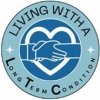Andy
Senior Member (Voting rights)
Study Overview
Brief Summary
Psychological distress (anxiety and depression) is common in and experienced differently by people living with long-term health conditions (LTCs). Being able to measure whether psychological distress is related to living with a LTC would allow researchers and clinicians to provide interventions specifically tailored to the challenges of living with a LTC and therefore provide the most appropriate support for these patients. Such a measure would also be useful in research to identify the presence of illness-related distress in different patient groups. This project will therefore create a new measure of illness-related distress that has applications for both research and clinical practice. This will involve the psychometric validation of the new illness-related distress measure to test how valid and reliable the measure is.
The aim of the project is to provide initial validation of the Illness Related Distress Scale in a community sample, recruited through online platforms. The objective of the study is to gather initial validity and reliability data for the scale.
https://clinicaltrials.gov/study/NCT06072287
Brief Summary
Psychological distress (anxiety and depression) is common in and experienced differently by people living with long-term health conditions (LTCs). Being able to measure whether psychological distress is related to living with a LTC would allow researchers and clinicians to provide interventions specifically tailored to the challenges of living with a LTC and therefore provide the most appropriate support for these patients. Such a measure would also be useful in research to identify the presence of illness-related distress in different patient groups. This project will therefore create a new measure of illness-related distress that has applications for both research and clinical practice. This will involve the psychometric validation of the new illness-related distress measure to test how valid and reliable the measure is.
The aim of the project is to provide initial validation of the Illness Related Distress Scale in a community sample, recruited through online platforms. The objective of the study is to gather initial validity and reliability data for the scale.
https://clinicaltrials.gov/study/NCT06072287

